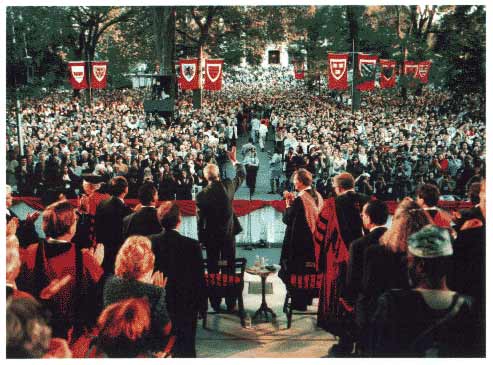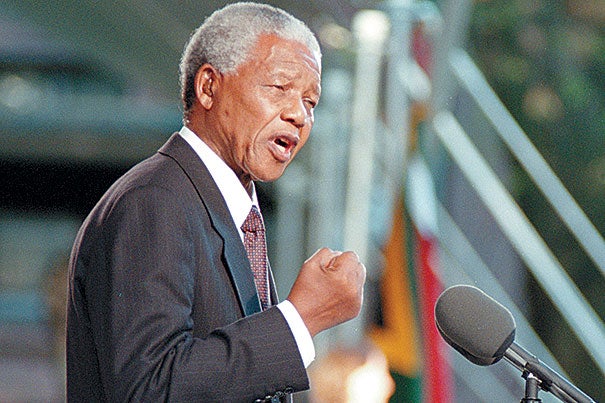The greatest single challenge facing our globalized world is to combat and eradicate its disparities. While in all parts of the world progress is being made in entrenching democratic forms of governance, we constantly need to remind ourselves that the freedoms which democracy brings will remain empty shells if they are not accompanied by real and tangible improvements in the material lives of the millions of ordinary citizens of those countries. Where men and women and children go burdened with hunger, suffering from preventable diseases, languishing in ignorance and illiteracy, or finding themselves bereft of decent shelter, talk of democracy and freedom that does not recognize these material aspects can ring hollow and erode confidence exactly in those values we seek to promote. Hence our universal obligation towards the building of a world in which there shall be greater equality amongst nations and amongst citizens of nations.
– Nelson Mandela speaking at Harvard University In September 1998.

Nelson Mandela was a towering figure of the 20th century and president of South Africa from 1994 to 1999.
Imprisoned from 1964 to 1990, Mandela came to symbolize the struggle for freedom, equality, and justice among his countrymen and around the world. South Africa’s triumph over apartheid, its peaceful transition to democracy in 1994, and the growing pains the nation has felt in the years since are all part of the onetime revolutionary’s narrative.
In 1998, Nelson Mandela received the third honorary degree ever awarded by Harvard outside of a commencement ceremony or a university anniversary. (The first two recipients being George Washington and Winston Churchill.) In his speech, Mandela reflects with wit and humor on the role of intellectuals, and of Harvard in particular, in the democratization of developing nations.

